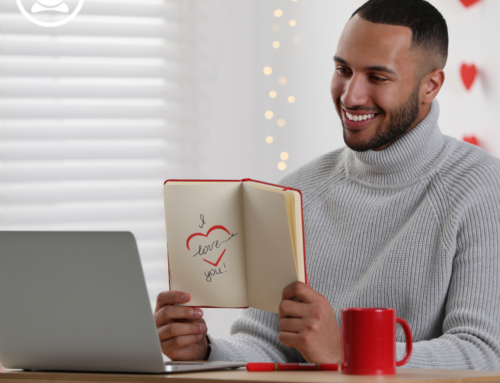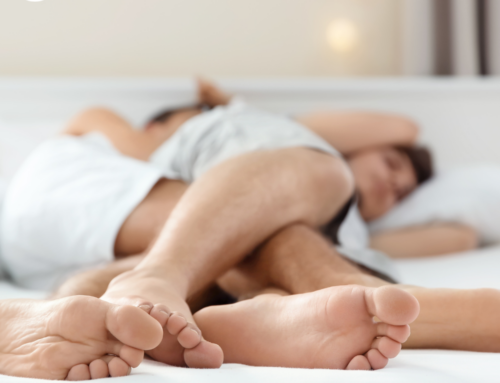Disabled dating on Tinder: ‘People ask if I can have sex’
Michelle Middleton: ‘I’d never been in that situation where I had to try to sell myself and cerebral palsy to someone who hadn’t met me.’ Photograph: Christopher Thomond for the Guardian
“I cut my wheelchair out of any photo I put on Tinder,” says Courtney Hall, a 19-year-old sixth-form student in Banbury, Oxfordshire. “It’s like, then they can get to know me for me.”
The swipe function of Tinder may have become synonymous with criticisms of a more shallow, disposable take on dating but, for Hall – who has cerebral palsy and epilepsy – downloading the app last year was a chance to free herself from the snap judgments she has had to deal with offline.
“I never get approached in bars when I’m out with friends, where a guy can see me in person,” she says. “I feel as if they look at me and just see the wheelchair. Online, I [can] speak to them for a day or so before revealing anything.”
Courtney Hall’s Tinder profile picture.
Last month, Tinder users took to social media to expose the discrepancy between their Tinder photos and what they really look like – think flattering angles, body-con dresses and blow-dries, versus double chins, coffee-stained T-shirts and bed hair. Unknowingly, a fleeting trend pointed to the dilemma that disabled online daters routinely find themselves in: do I show my disability in the photo? And, if not, or for the many people whose disability isn’t visible: when do I tell someone I’m disabled?
Michelle Middleton, 26, from Liverpool, has cerebral palsy and walks with a limp – but, as she rarely uses a wheelchair, there’s no obvious “giveaway” in a photo.
Unlike Hall, Middleton – who has been on Tinder for a little under a year but hasn’t logged in for a month – seems to miss the simplicity of meeting someone face to face in a bar.
“Then, as soon as they see me walk, they know. Online, because they can’t see you, you have to force it,” she says. “You never really know how to get it into conversation.”
Middleton, who is currently setting up a disability awareness business, speaks with a straight-talking confidence but, online, she found herself trying various methods to broach the subject. When she first joined, she opted for trying to “get to know them first” – messaging someone for about a week before talking about her disability – but after one man responded by accusing her of lying, she felt she had to “get it in” quicker.
She says she’ll always remember the first guy she told. “It was so awkward,” she laughs. “I’d never been in that situation where I had to try to sell myself and cerebral palsy to someone who hadn’t met me. His first question was: ‘Oh, right. Does it affect you sexually?’”
Google the phrase “Tinder sex messages” and it’s clear that you don’t have to be disabled to get this particular kind of attention. But being a disabled woman often means facing men who have a particular fixation on disabled sexuality – whether they’re on or offline.
Hall tells me one reason she tried online dating was that men in bars kept buying her drinks “only so they could ask about her disability”. Now, on Tinder, she finds that, after she tells men she’s disabled, they often reply to ask if she can have sex.
“That’s the first thing that pops in their minds,” she says. “Would you ask that if I didn’t use a wheelchair?”
Michelle Middleton’s Tinder profile picture.
Middleton tells me she thinks she has now received “every awkward and patronising question” online. Do you have sex? Do you look really bad when you walk? Would you have to bring your wheelchair on our date?
“My best was: ‘Ah, so that’s why you’re single then?’”
But Hall remembers the positive responses just as much. “There was a great guy from Tinder I dated last March. We went to see Jurassic Park on a date and I had a fit in the cinema. I vomited on myself and him!” she laughs.
“His reaction wasn’t: ‘Oh, my God, that’s disgusting.’ It was: ‘Oh, my God, how can I help her?’ You don’t expect that, but it’s nice when it happens.”
They broke up a few months later but Hall is confident that the relationship didn’t break down because of her disability.
She adds that she had waited two weeks to tell him she was disabled. “That’s the longest I’ve left it, actually,” she says. “I really liked him. I thought: will this change things?”
That fear is understandable. Last October, after being on Tinder for eight months, Middleton got to know someone who wasn’t bothered when she told him about her disability. But once they got offline – meeting in a pub one evening – things seemed to change.
“The date seemed to be going well until he asked me why I’d said I had a mild disability,” she says. “I asked what he meant. He said: ‘Oh, come on, babe, you said you limped and it was mild, but that’s a lot more than a limp and definitely not mild. There’s no getting away from that!’ He saw nothing wrong in what he’d said. I was so shocked that I immediately left. You wouldn’t say to a fat person, Oh, you didn’t say you were that fat.”
Andy Trollope: ‘I always make sure my first picture makes it abundantly clear I use a wheelchair.’ Photograph: Adrian Sherratt for the Guardian
As with any form of dating – for disabled or non-disabled people – there’s a large element of searching for gems while trawling through a sea of human beings who are best avoided. But many of the negative reactions stem from ignorance or awkwardness around disability – or simply unfamiliarity with even speaking to a disabled person.
This month, the disability charity Scope ran a poll of 500 people in the UK asking: Have you ever been on a date with a disabled person who you met through a dating website or app? A little more than 5% of people said “yes”. Previous research also showed almost eight out of 10 people in Britain have never invited a disabled person to any social occasion. Add dating and sex into that equation and the belief that disability equates to being sexless, different – or inferior, even – can feel a powerful prejudice to tackle.
Andy Trollope, 43, was paralysed from the chest down in 2009 after a motorcycle accident. He says he had a lot of “good sexual relationships since becoming disabled” but, in 2012, after being single for a while, he decided to try online dating. He didn’t want there to be any doubt that he was disabled.
Andy Trollope’s Tinder profile picture.
“I always make sure my first picture makes it abundantly clear I use a wheelchair – a full front shot,” he tells me. “Me in a pub or playing sport or whatever, but where you can see the chair.”
Unlike Hall and Middleton, he signed up to Plenty of Fish and Match.com as well as Tinder. He says he found each as frustrating as the other. “I could see loads of people had viewed my profile, then I’d message and get no reply. I was spending literally hours on the sites – for two years – and I got two dates out of it. It must be because of the wheelchair.”
Trollope stopped using the sites after meeting someone on a night out, but, by the end of his time on dating sites, he had put up a line on his profiles that said: “Yes, I’m in a wheelchair. Yes, I’ve dealt with it.”
“I wanted to make clear that, yes, I enjoy my life,” he says. “I actually messaged people back [after they’d viewed my profile] and asked: ‘Can you be honest, is it because I use a wheelchair?’ I got no replies.”
Hall similarly craves honesty. “Something I find annoying is when I ask if they’re OK with disability they say ‘yes’, but further down the line, when talking about actual dates, they say they just felt guilty. They didn’t want to say the reason they didn’t want to date me was because I use a wheelchair,” she says. “They think they can’t handle it – which is fine, because disability can have an impact. But they’ve just wasted my time.”
“Sometimes you think, ‘Why am I on here?’ But then you meet a nice guy,” she says, smiling. She has been talking to someone new on Tinder. “I told him after we’d been speaking for a day,” she says. “He told me his sister has cerebral palsy. I wasn’t expecting that.”





